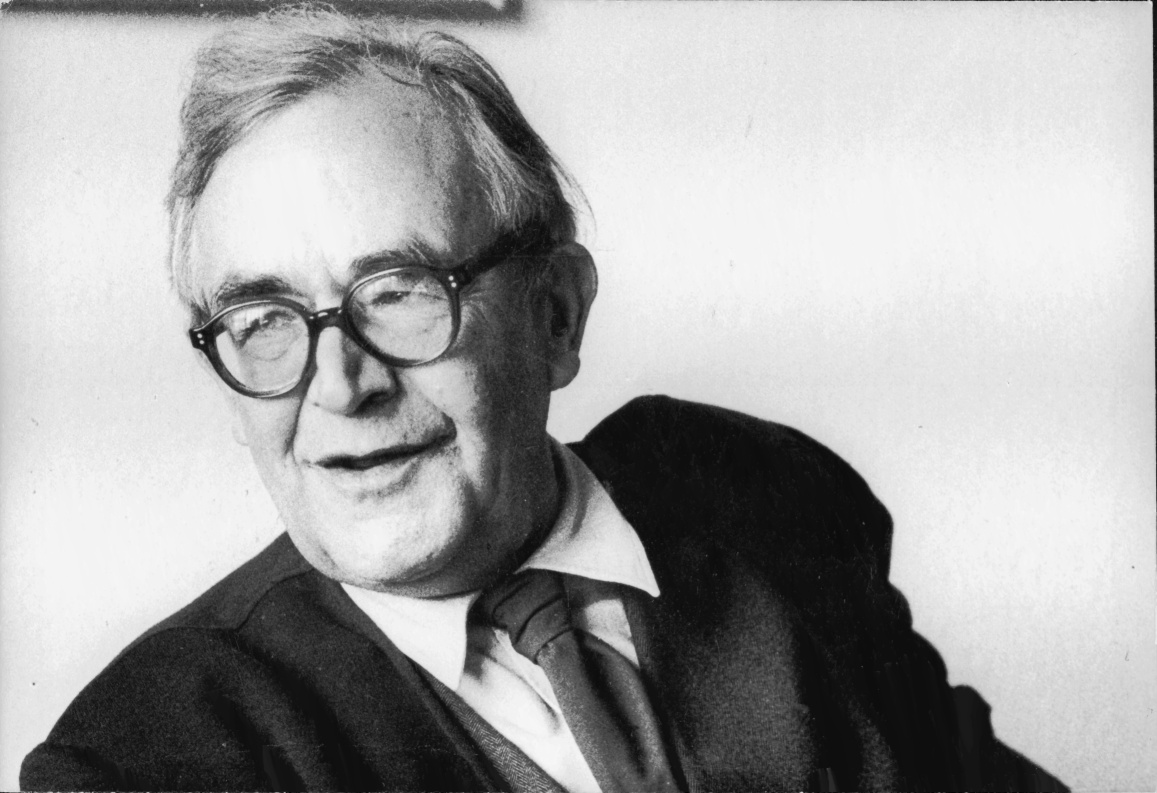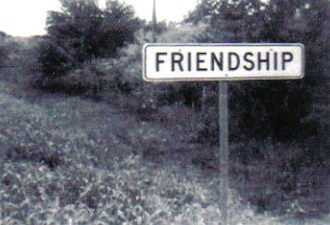
Karl Barth may be a name you’ve heard in the past, but my guess is you know very little about him. I think I can sum up in about 3 sentences what I know. The first thing I figured out about him was that he was “neo-Orthodox.” I didn’t really know what that meant so I asked a really smart colleague of mine, “I get the sense” I said, “that conservatives think Barth’s to liberal, but liberals think he’s too conservative, so where do he fall?” My colleague responded this way, “Barth [pronounced “Bart” without the
-th] was a liberal theologian who couldn’t explain man’s capacity for evil in two world wars.” This was an immensely helpful answer to me.* Liberal theologians generally affirm the innate goodness of men, denying original sin. Barth couldn’t rationally uphold this position from the things he witnessed. The third thing I learned was what the book in my hands tells me: He’s “generally regarded as the greatest Protestant thinker of modern times.”
These limited references to Barth interested me in his thought. I read part of his
Evangelical Theology, but none of it made much sense. I listened to a lecture on
his view of the Ten Commandments and had trouble articulating even his metaphors. Fortunately I recently picked up a shorter (96 pgs) book of three lectures called
The Humanity of God that I’d bought at a local used book fair. I found it much more digestible.
Of the 3 lectures in the book, I most appreciated, “Evangelical Theology in the 19th Century”—though all three are worthwhile. In it Barth reviews just what the title indicates, but he goes beyond a review to help us learn from it and to point us toward worthwhile pursuits. Thus, here I’d like to highlight some of his points and comment on them.
Barth’s major purpose is to help us learn about and learn from 19th-century theology’s interaction with contemporary worldviews. He believes 19th-century theology was intent on being relevant to contemporary philosophy. It wanted to hang out with the cool crowd. But these intentions displaced theology’s primary tasks. Barth writes, “openness to the world meant that through the open windows and doors came so much stimulation for thought and discussion that there was hardly time or love or zeal left for the task to be accomplished within the house itself” (19). Theology got caught in 19th-century philosophy’s whirlwind of change. So much so that theology failed to maintain its heading and instead discoursed into other worthwhile but peripheral concerns.
Why? Barth believes part of the reason was that “Nineteenth-century theology ascribed normative character to the ideas of its environment” (19). In other words, theologians became convinced that it had to live by the rules that modern philosophy had constructed. Yet, as Barth will point out, these very rules undermined theology’s work, values, and worldview.
Instead, Barth believes that theology would do well to stay focused, maintaining its own—if parallel—course, abiding by its own rules, content with its own direction, and less concerned with being relevant to the surrounding culture. In that way, it might be better suited to benefit its surroundings, indeed even prove
more relevant. “…the most honest commerce with the world might best be assured when the theologians, unheeding the favors or disfavors of this world, confronted it with the results of theological research carried out for its own sake. It did not enter their minds that respectable dogmatics could be good apologetics.” (20). Indeed, self-centered theology would not only be more relevant but also be better suited to explain itself, to make its defense, to present its view. “Man in the 19th century might have taken the theologians more seriously if they themselves had not taken him so seriously” (20). Theology was like an insecure man, intent on winning the affection and respect of his peers.**
To its own detriment, theology became consumed with explaining itself, defending itself, and presenting its view within the framework of the 19th-century worldview. Upon a secular foundation, theology attempted to build a sacred house. It was using metric measurements to describe a building based on English units. “…openness to the world led necessarily to the specific assumption that theology could defend its own cause only within the framework of a total view of man, the universe, and God which could commend universal recognition….[and] speak from within one of the current philosophies and world views” (20).
More than that, Barth seems to be saying, theologians were trying to validate their English-measured building by using philosophy’s metric standards. In fact, they were so concerned with making the conversion from English to metric that they were no longer working on the house itself. “They set out to prove the possibility of faith in its relatedness to, and its conditioning by, the world views which were normative for their contemporaries and even for themselves.” (21) But how effective can this relating be? “Was it possible to win the ‘gentiles’ for the Christian cause by first accepting the ‘gentile’ point of view. . . ?” (23)
According to Barth’s review of the 19th century, metric standards grew outdated by their own users. It was replaced by a new system of measurement. This left behind the theologians who had concerned themselves with a clear conversion. They became irrelevant—the very thing they were trying to prevent by translating their theology into contemporary philosophical language. “The world views changed in the course of the century; but there were always theologians who went along, more or less convinced, if not enthusiastic, and who started the theological task afresh within the new framework” (21).
This was, in my mind, the most interesting point Barth made. All of his points about 19th-century theology seem true for us looking back on 20th-century theology (perhaps more so in the church than in academic theology though; I don’t know enough to say). But his words, just quoted, could be applied quite easily to our present shift from modernism to postmodernism. Many are attempting to uphold modernism only because they’ve worked so hard at translating their theology for that worldview. To give up modernism as lost is to start over with this translation. However, as Barth points out, others will start the theological task afresh, and with enthusiasm. Barth is not endorsing a particular worldview though. Rather, he’s saying that
all worldviews obscure Christian theology.
Those who are pushing forward to bring theology to postmodernism are not crucifying the faith but seeking to recontextualize it, retranslate it.*** If this is true, modern theologians should not be demonizing postmodern ones but instead empowering them to rebuild, encouraging them even.
Still, some persist in defending, not the Christian faith, but the modern worldview that Christian faith has been adapted to so well. Yet, “Is there any proof that acceptance of a particular world view will make Christianity generally accessible or even possible? . . . . Nineteenth-century evangelical theology assumed that this was so” (23). If we do the same, we are doomed to repeat the history of the liberal theologians of the 19th century. Indeed, if we believe that translating the Christian faith, finally, into postmodern terms will be sufficient, we are doomed as well. Those who are on the cutting edge today in translating the Christian faith may tomorrow be holding us back from moving beyond postmodernism.
When Barth gave this lecture in 1957, he said theology was still paying for its errors from the 19th century. One hundred years of momentum is hard to shake. “Theology is still being penalized for accepting the Renaissance discovery that man was the measure of all things, including Christian things. On this ground the testimony of Christian faith, however honest, and however richly endowed with Biblical and Reformation recollections, could only exist like a fish out of water” (26). The Christian faith cannot breathe the air of modernity forever precisely because modernity is man-made. The Christian faith is not built for man-made systems, and it will always be a foreign agent within them.
Man-made systems must be transformed by God’s words to us, not the other way around. Barth grasped this. “What if by talking about Christianity as a religion these theologians had already ceased to speak of Christianity…? What if the only relevant way of speaking of Christianity was from within?” (30-31) No, indeed, Christianity is always a fish out of water. We must instead take the fish and find the water instead of trying to give the fish lungs to breathe. In doing so, it is no longer a fish. In doing so, it is no longer Christian faith.
Even if we believe we’ve found some universal truth relevant to the Christian faith, “Even granted the existence of man’s religious disposition, can the Christian faith be called one of its expressions, in other words a ‘religion’?” (23) To call Christianity a “religion” is to attribute to Christianity a meaning that is not valid, it is to taken our concept of “religion” and attach its meaning to Christianity. But Christianity cannot stand on the legs of “religion.” “Religion” cannot support it. Christianity cannot be measure by religion’s yardstick. Barth was pointing us not to another man-made worldview. He was pointing out that no man-made worldview would suffice. Instead we must go back repeatedly, stubbornly, redundantly, desperately to our Bibles and be shaped again by God’s molds and be fitted by his measurements.
* My colleague’s insight drew my attention to two of Barth’s own passages that confirmed this analysis. Barth spoke personally, saying, “…he who in 1933 may still have been spellbound by the theology of the 19th century was hopelessly condemned, save for a special intervention of grace, to bet on the wrong horse in regard to national socialism and during the clash between the Confessing Church and the German Christians who supported the new regime (Kirchenkampf). I mentioned these developments only as symptoms [of theology’s infatuation with contemporary thought]” (28).
“One day in August 1914 stands out in my personal memory as a black day. Ninety-three German intellectuals impressed public opinion by their proclamation in support of the way policy of Wilhelm II and his counselors. Among these intellectuals I discovered to my horror almost all my theological teachers whom I had greatly venerated. I suddenly realized that I could not any longer follow either their ethics and dogmatics or their understanding of the Bible and of history. For me at least, 19th-century theology no longer held any future” (14).
His analysis was indeed quite essential in helping me to grasp the crux of Barth’s theology because it pointed me to the source for it.
** We have a hard time imagining that being apart from our surroundings could indeed better prepare us to relate to our culture. Yet those who change culture are not those who are most like it.
*** It reminds me of Barth’s metaphor of the aufhebung nature: continuity through discontinuity. That is, theology dies in modernism—discontinuing there—only to continue anew in postmodernism.



























 Sunday morning my sister and I decided to take her son to the playground at the school behind their apartment—through the woods down a little asphalt path.
Sunday morning my sister and I decided to take her son to the playground at the school behind their apartment—through the woods down a little asphalt path.


 Karl Barth may be a name you’ve heard in the past, but my guess is you know very little about him. I think I can sum up in about 3 sentences what I know. The first thing I figured out about him was that he was “neo-Orthodox.” I didn’t really know what that meant so I asked a really smart colleague of mine, “I get the sense” I said, “that conservatives think Barth’s to liberal, but liberals think he’s too conservative, so where do he fall?” My colleague responded this way, “Barth [pronounced “Bart” without the -th] was a liberal theologian who couldn’t explain man’s capacity for evil in two world wars.” This was an immensely helpful answer to me.* Liberal theologians generally affirm the innate goodness of men, denying original sin. Barth couldn’t rationally uphold this position from the things he witnessed. The third thing I learned was what the book in my hands tells me: He’s “generally regarded as the greatest Protestant thinker of modern times.”
Karl Barth may be a name you’ve heard in the past, but my guess is you know very little about him. I think I can sum up in about 3 sentences what I know. The first thing I figured out about him was that he was “neo-Orthodox.” I didn’t really know what that meant so I asked a really smart colleague of mine, “I get the sense” I said, “that conservatives think Barth’s to liberal, but liberals think he’s too conservative, so where do he fall?” My colleague responded this way, “Barth [pronounced “Bart” without the -th] was a liberal theologian who couldn’t explain man’s capacity for evil in two world wars.” This was an immensely helpful answer to me.* Liberal theologians generally affirm the innate goodness of men, denying original sin. Barth couldn’t rationally uphold this position from the things he witnessed. The third thing I learned was what the book in my hands tells me: He’s “generally regarded as the greatest Protestant thinker of modern times.”